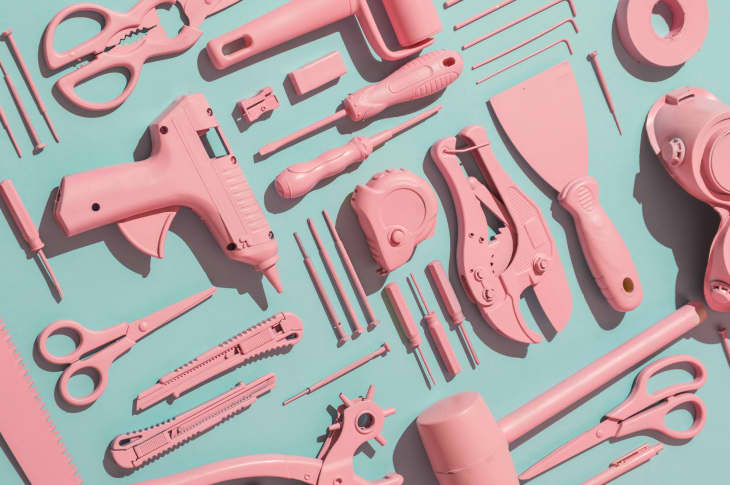5 Smart Home Habits You Should Steal from the Best Landlords

If you’ve ever rented before, you know that all landlords are not created equal. While some do the absolute minimum to get your monthly rent check, others do an incredible job at maintaining clean buildings and keeping their tenants’ best interests in mind. Recently, Brick Underground released a list of these amazing landlords. It got me thinking: Who better than a great landlord to give maintenance tips? So I reached out, hoping to tap into their extensive knowledge of running multiple properties simultaneously. Thankfully, their advice was just as good as I hoped (and is still achievable on a smaller scale). Here, the best housekeeping habits to steal from the best landlords in the business.
Embrace an “ownership mentality.”
At The Durst Organization, service team members are instilled with an “ownership mentality,” says Dan Mogolesko, vice president of residential leasing and management. This means that they’re trained to look after the company’s buildings with as much care and concern as they do their own homes. “We reward team members when they go above and beyond what may be expected of their primary role,” he says.
Try this same approach with your home. Instead of considering regular upkeep a chore that you tackle reluctantly, commit to maintaining your home with pride. It will pay dividends in performance, aesthetics, and resale value.
Be proactive.
Members of Mogolesko’s team inspect each property weekly to spot problems of any kind: Everyone carries a notepad and pen with them at all times so work tickets can be created on the spot.”It’s important to ensure that small problems don’t become large ones,” he says. For example, an undetected minor leak under a kitchen cabinet can cause extensive damage later on if not addressed immediately.
Be proactive with your home and regularly inspect it inside and out to detect problems before they get out of hand. Carry a notepad and pen while you do it, too. If you have trouble being consistent, make an inspection checklist and commit to going over the list on the same day each month.
If you don’t know, ask.
Tenants’ eyes and ears are a valuable resource for Hsueh Yan, senior director of asset and property management for Asian Americans for Equality, another top landlord in Manhattan. “When tenants report issues promptly, that means we can get on it that much quicker,” he says. Yan encourages tenants to report seemingly trivial details or ask questions if something seems amiss.
If you’re unsure about something in your home—whether it’s a frayed wire or a discolored patch of drywall—it’s better to be safe than sorry. Seek out a professional’s advice to ensure that there isn’t a problem and—if there is—that it gets the attention it needs.
Know the signs of equipment trouble.
When it comes to maintaining equipment like boilers or air-conditioners, Mogolesko and his team carefully monitor machinery for signs of trouble. They use management software to measure and audit mechanical equipment and keep a close eye on pressure readings.
While the equipment in your home is probably less complex, constant vigilance is just as important. Read your equipment manuals so you know the warning signs of each unit, such as blinking lights, unexpected moisture, or odd noises. “Early intervention is essential,” Mogolesko says. Be sure to bring in an expert to maintain your units on a regular basis for peak performance.
Have a game plan.
Whether it’s a mechanical malfunction or an electrical problem, Mogolesko has a trusted team of specialists in place to address any and every situation quickly and competently. Many of these professionals know the company’s buildings inside and out and thus operate better with that institutional knowledge. Plus, Mogolesko keeps certain replacement parts and equipment on-hand for minor repairs.
Likewise, have a contingency plan in place for when things go wrong around your home. Build a strong Rolodex of dependable contacts so that, when the A/C goes on the fritz, you can have help at your house before you even start to sweat. If you use the same people again and again (if you’re happy with their work, of course), they’ll have added insights into your home and its systems. And, while they’re there, ask them about what spare parts might be cheap and easy to purchase to keep on-hand for future repairs.